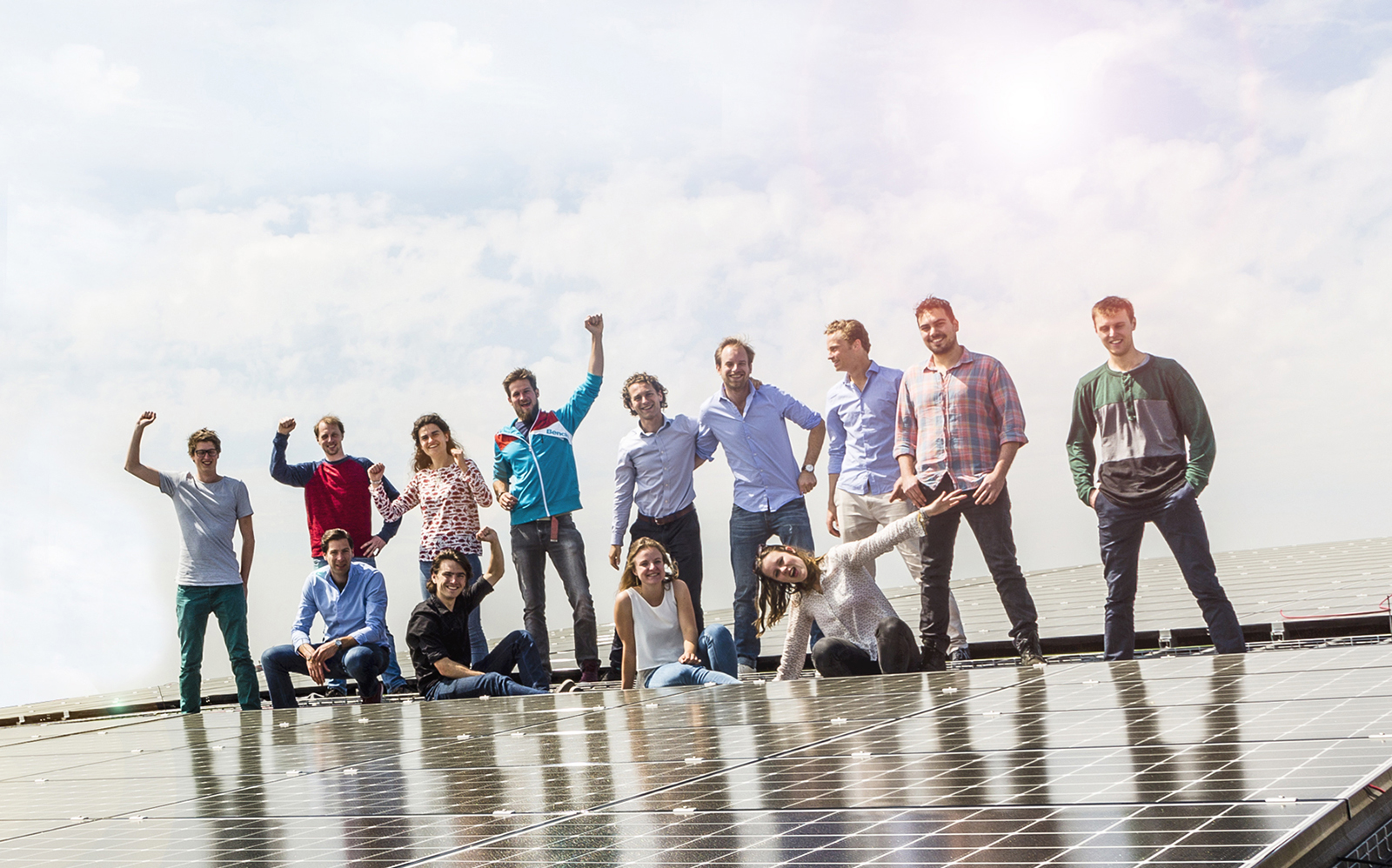A Delft company started by two friends in 2014 aspires to be the global leader in solar energy software in five years. How does Solar Monkey get the necessary talent?
As Solar Monkey plans to expand via the Netherlands, Belgium and Europe to ultimately be the global market leader, it knows that good staff is indispensable. (Photo: Marjolein van der Veldt)
“Sorry university, but we pay no attention to training when we hire people,” Jan Pieter Versluijs, founder and CEO of the Delft startup Solar Monkey, says it laughingly. But he means it: when recruiting new staff, diplomas do not play a major role. They are not even necessary.
Versluijs and co-founder and CFO Mels van Hoollwerff both graduated from TU Delft. They know each other from their student days. While Versluijs, after setting up one less and one more successful startup during his student days, was employed by the consultancy firm Newton in London, Van Hoollwerff was graduating on models for shadow calculation for solar panels.
When the two met and started talking about Van Hoollwerff’s research, they soon realised that there was a new company in it. They started measuring at locations where solar panels were planned. They made shadow calculations based on 360 degree photos. “That was a nice try, but not scalable. It is impossible to go everywhere physically,” says Versluijs. The two brought in Van Hoolwerff’s former roommate and together they developed software which now has a major impact on the solar energy market.
‘We stringently test our candidates’
The three combined 3D models from the ‘General Elevation File of the Netherlands’ with high resolution aerial photos, allowing their customers to quickly calculate the shadow drop from their computers. They also built in a monitoring system, so that problems in solar panels can be detected quickly and their own calculations can be calibrated.
300 customers
After one year, Solar Monkey raised EUR 200,000 in an investment round, after which a fourth colleague could be hired. At the end of April – when the interview for this article took place – the company had 300 customers, together accounting for 130,000 designs of solar installations annually. At the end of April the counter stood at 15 FTEs and several trainees and graduates. The company was also about to exchange the YesDelft incubator building for its own office space, after a new investment round, now for EUR 1 million euros.
Back to staff recruitment. As Solar Monkey plans to expand via the Netherlands, Belgium and Europe to ultimately be the global market leader, Versluijs knows that good staff is indispensable. The company particularly needs software developers and sales staff. Solar Monkey advertises internationally, sometimes calls in the help of recruiters and occasionally contacts people via LinkedIn. In the beginning, Solar Monkey often spoke to its own Delft network, but the company now has to fish in a significantly larger pool to reach the right people.
Character and willpower
If diplomas are not important, what is? “We have a tough job application process. We stringently test the candidates with case studies and role plays for sales functions and with coding tests for developers,” says Versluijs. In addition, the company looks at character, willpower and perseverance. Solar Monkey also expects its people to be inquisitive and ambitious. “Precisely because we are in the initial phase and as a company we still have a lot to learn.”
Versluijs gives an example of how his personnel policy can turn out: one of his salespeople was a painter and a family man when he called about a vacancy at Solar Monkey. “He was so nice on the phone. If his pleasantness worked with us, then it will work with clients we thought. And indeed, he is incredibly motivated and has grown a lot. He is our coolest hire so far.”
Do you have a question or comment about this article?
s.m.bonger@tudelft.nl


Comments are closed.